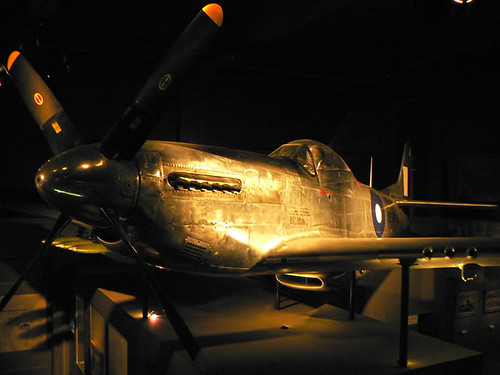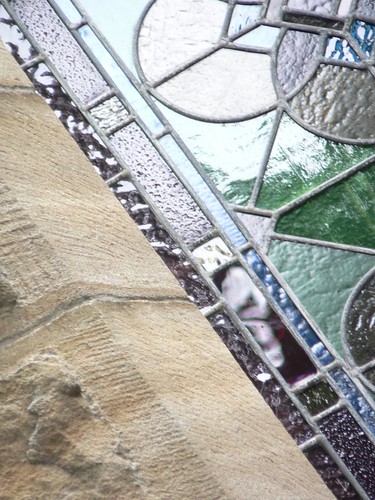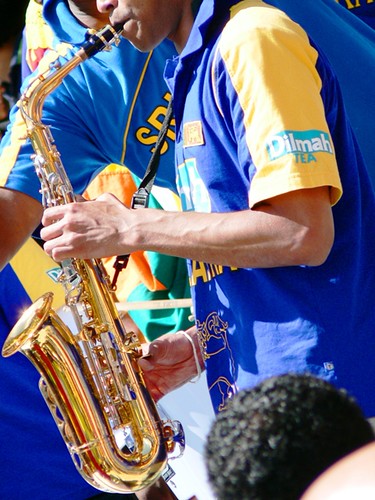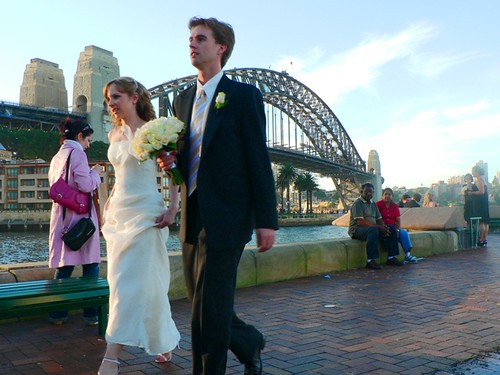Living in a liberal democracy as free thinking individuals, getting by in cities surrounded by hoards of other people and being connected to a world where most of our daily chores are ‘enabled’ or ‘powered’ by reasonably sophisticated technology, where I sit at a desk and carry out intellectually challenging tasks to make a living and buy practically all my needs at a supermarket or department store… really sucks.
It sucks because I am not made to live this way. Millions of years of evolution did not design me to live life this way. This lifestyle has been engineered in a matter of a couple of centuries at most, while our bodies and most of the uncontrollable parts of our minds are literally still trapped in the stone age.
I am actually made – I’ll say optimised - to live in a small clan, to hunt for food, be obedient and subservient to the leader of my clan. Natural selection was kind to those who followed such simple rules and so that way of life is etched into our genetic memory. Now that I am at the prime of my youth, biology and hormones in particular conspire to make me feel horny and ever eager to do horny things with equally horny lasses from neighbouring clans. Then civilization comes along to muck it all up and poetic notions about love and morality have made me a social outcast by working against my hormones to keep me celibate.
Multitudes cramped up into cities meant we had to draw up elaborate social conventions and stricter codes of behaviour to maintain order and peace. But the real destroyer was philosophy, science and their offshoot - technology. Medicine gave every nincompoop an almost equal chance of survival. That is not how nature worked. Even though evolution by mutation continued to create more diversity, natural selection had no say in who survived and who didn’t. You didn't have to adapt to your environment to survive. Well, on the other hand natural selection would have purged Dr. Stephen Hawking’s genes out of humanity and propagated those of say... any powerful, not necessarily intelligent but dominating men like Dr. Silva for example (if only to illustrate the point). But is humanity better off for having someone who claims to know a lot about Blackholes? Maybe, but it’s sort of like giving a five-star safety rating to a car because it’s got leather seats and climate control, while knowing that its brakes are faulty.
In a just, egalitarian, democratic, world; brawn would matter less. In free flowing lanes, a car without brakes would not be at a disadvantage. But it seems our biology is not yet sophisticated enough to enable us to blend seamlessly into an egalitarian, democratic, peaceful world let alone being equipped to create one. Even though the learnable, programmable parts of our minds creates a fleeting glimmer of hope for such a world, the hard-wired vestiges of a long and brutal route through evolution has preserved in us a genetic memory of tribalism, violence and selfishness. We are poorly equipped to be in a fostering and peaceful coexistence with each other - let alone share a wonderful planet with an incomprehensibly rich diversity of other species.
Think… play silly games with your mind… sing and dance with your conscience. Learn to find inspiration in the trivialities that surround you and use that inspiration to make someone laugh, to touch a life in a special way or to make a gift of yourself to this marvelous world.
Tuesday, January 20, 2009
Nature's 'tools'
Saturday, January 10, 2009
Situation Report
Valiant troops of 1st Dutugamunu regiment led by Maj. Silva and 4th Chinthana regiment commanded by Lt. Col. Goatspirit together with close air support provided by the Impotent Elephant Force have captured the strategically important Law and Order area in Sri Lanka. They were ably assisted by 30 years of crimes and oppression conducted by the Pussycat regiment troops led by self styled Col. Velupulli who covered the flanks of the government's offensive by veiling their actions in a perception of legitimacy.
This decisive victory for the government comes after decades of abuse and covert manipulation of the once sovereign citizenry who have been waging a protracted submission to despotic rule and a half-arsed digestion of Minotaur Dung that they have been made to swallow through government media. Deep penetration units of a hitherto secret battle formation carried out successful attacks at identified targets in the deep battle space last month, including a radio and TV station in the outskirts of Colombo and a newspaper editor who was fatally shot on his way to work. Thugs who conducted these operations have confirmed that the targets were successfully engaged. Exact damages to the civil liberties and freedoms of citizens are yet to be confirmed.
Meanwhile defence analysts warned that liberal thinkers and prominent voices of non-violent dissent in the south of the country will continue to be targeted in the ongoing inhumanitarian operation of the government as in the North for many decades. Other hysterical elements fear the possibility that the next generation of forces similar to the 2nd Silva regiment and the disbanded Seenibola regiment – famous for their low IQ and night-club brawls - could be waiting in the wings to stage an attack to dismantle any remaining resistance by a surprise rear shafting manoeuvre behind people's defence lines.
Historians point out that the people of Sri Lanka have shown resilience during the past century by resisting and withstanding more systematic assaults by colonial forces and staging strong fight-backs to regain lost independence and freedom. Such acts of resistance was enabled by their ability in the past to unite across lines of race and creed to form a common front in the face of tyranny and injustice. This however seems an unlikely possibility in the current theater of battle, given the fact that a significant majority of the masses have been incapacitated by a dysfunctional education system, manipulated media and violence perpetrated on them by elements ranging from 'obese, psychopathic, wannabe terrorist, feline flatulence globules to the very trustees of their unalienable sovereignty.
Thursday, January 08, 2009
Who we are and what we do
There is nothing noticeably different between two red blood cells of two individuals. Yet, each cell inherits the unique (though somewhat similar) genetic code of each donor – out of which an identical copy of the donor could be cloned. The character of every living thing and even inanimate object is partly defined and partly influenced by the duality of inheritance and conditioning. A rock may inherit the basis for its rigidity and colour from a unique mineral composition, but its strength, shape and size may have been conditioned by geological forces and erosion or even manual forces such as the stokes of a stone mason's chisel. Similarly, living things inherit form and function from their ancestors while their knowledge and traditions are conditioned by their experience of the environment and by society.
The influence of inheritance and conditioning can reasonably explain how things are. However, they do not offer useful explanations about why we do some of the things we do. Perhaps this is because imagination, ambition, desire... are not inherited nor can they be easily conditioned into or out of us. These are our creations. Our actions and what we do are also in their final sense – creations. But are we what we do?
I’ve always wondered about the link between who we are and what we do. Even a mildly introspective person would take little time to realise that there are contradictions between the way we think of our selves and the way we act. If our actions are separated from their underlying motives, it becomes increasingly difficult to classify them narrowly as ‘good’ or ‘evil’, ‘right’ or ‘wrong’.
It seems obviously too simplistic to see individuals being classified as ‘good’ or ‘bad’, ‘terrorist’ or ‘peacenik’ or even ‘sane’ or ‘insane’. Classification and generalisation can be useful tools to define and understand broad principles but such principals do not constitute any real or useful knowledge. Arguably, the constituent raw elements of our personalities such as our thoughts, words and actions have no distinguishable form or shape or colour of their own. They combine to create the perception of ‘who we are’ but it is not always clear whether our thoughts are directly linked to our words or inturn to our actions.
The visible boundaries of our self-knowledge such as the extent to which our personalities and actions are inherited or can be conditioned remain yet unexplored. I am not in the mood to explore them either, because I have a couple of hefty bills to pay today, much to learn about ASP.NET and a never ending list of applications to audit (and document) at work and dreading the fact that I have groceries to shop for and half a bag of potatoes to boil and peal before dinner.
Tuesday, December 23, 2008
The gentlemen's game
Life is pretty good at Mid-Wicket… it’s not as boring as long-off, more respectable than third-man, not as depressing as gully (deep gully is usually worse) and a lot more comfortable than the square leg region. Some people assume that fine-leg must be a pretty sexy place to be, but batsmen tend to glance down fine leg quite often and it gets extremely wired down there. Mid-on and mid-off don’t offer a grand wide view of the whole pitch as midwicket does, and life in the cover region is just too tiring. Hard work put in by the sweeper cover and wicket keeper goes ignored and thankless on the best of days. How about the bowlers you ask? Well the bowlers get banged out of the park – and that’s not nearly as fun as it sounds. Forward short-leg gets bullied a lot and nothing really lasts at the slips.
Cricket terminology can be very subtle and therefore pretty difficult to catch, but the pressure usually never goes away because no one likes to be given out caught. The worst dismissal by far however, has to be getting out trapped with your “leg before the wicket”. So all else being equal, Midwicket is a nice place to be, even though it hardly offers too many chances to change the course of the game because only idiots get out caught at midwicket and every self-respecting batsman knows that a jab towards mid-wicket never really offers the chance to steal a quick one!
So when “the captain’s hand on your shoulder smote", you are left with little choice but to “play up, play up and play the game” or take up water polo… a game far less susceptible to seditious metaphors and euphemisms.
Thursday, December 18, 2008
Ordinary heroes
Mother's day came and went last week and I barely took notice. It seemed almost vulgar that I should do something special on this day alone, for a person who has given me so much of her life; and I don't mean that lightly.
It's not the fact that I wake up to a rude bed-side alarm now, that I miss the days when I awoke to my mother's gentle voice and her fingers combing my hair. I mean, I would be so embarrassed if she did that now, but it's something else about those years and about a mother's touch that is missing in this big bright world that I have stepped into.
When I was still a small person, my father laboured even after coming home from a hard days work just to make sure that the little white shirt and blue shorts I wore to school many years ago didn't have a single wrinkle on them. I came home from school to little treats almost every day and whether it was in the afternoon or at dusk after cricket practice, my mother was always there to ask me about my day and listen to every detail in my stories. I suppose I just didn't want them to feel as if I was waiting for corporate events like Mothers' or Fathers' Day to tell them how much I appreciate what they have done for me.
As a teenager, I never saw in my mother the woman who gave up a promising career to devote every minute of the best years of her life for me and my siblings. I may never know the courage or logic of that decision which was taken at a time when a woman is expected to be nothing short of an astronaut or head of state for society to take notice and consider her successful.
It took me over two years to teach my mother how to send an email through a series of training sessions that I am sure were as traumatic for her as they were for me. When she finally learned how to send me an SMS, I celebrated and shared the good news with my friends – the same way my parents would have celebrated the day I paddled my first infant steps across the floor.
She gets frustrated sometimes when I joke about it, because she feels that all the knowledge she gained in her youth had gone to waste and sometimes there are regrets that she could have made a good career if she decided to balance that with her commitment to the family. I have often felt that she paid too heavy a price for us, because life should be about making use of all the faculties and senses that enable us to appreciate our existence. How can it be a good thing to sacrifice all that – whatever the cause may be?
Yet I realise something now; a thought that seeps through the sacrifices and social stigmas that my mother would have had to battle two and a half decades ago. I am sure she wouldn't have made that choice out of any qualms about being able to balance a career with family commitments. It is visible now when I notice her slightly greying hair, or hear her voice over the phone across the oceans every week and when I try to picture the bright young woman who had returned from her studies oversees before she got married.
As I look across the empty miles, from a world where everyone is expected to work hard and make countless sacrifices to earn what they need, I see that my parents never demanded anything in return for their unconditional love. Everything I did or made drew out their smiles, and words of encouragement and appreciation flowed out evenly at my success as well as failure.
I suppose it is up to us to try and remind our parents in as many ways and as often as we can, that their labours have not been in vain.
Maybe we owe it to them, to seek not only 'success' in life – but also integrity and honour. My parents showed me by their life's example that I don't have to be rich and famous to be considered successful. They are themselves a testament to the fact that most of the real heroes in our lives are ordinary people who have shown extraordinary commitment and love.
(published in The Sunday Times - Mirror Magazine (20/05/2007)




